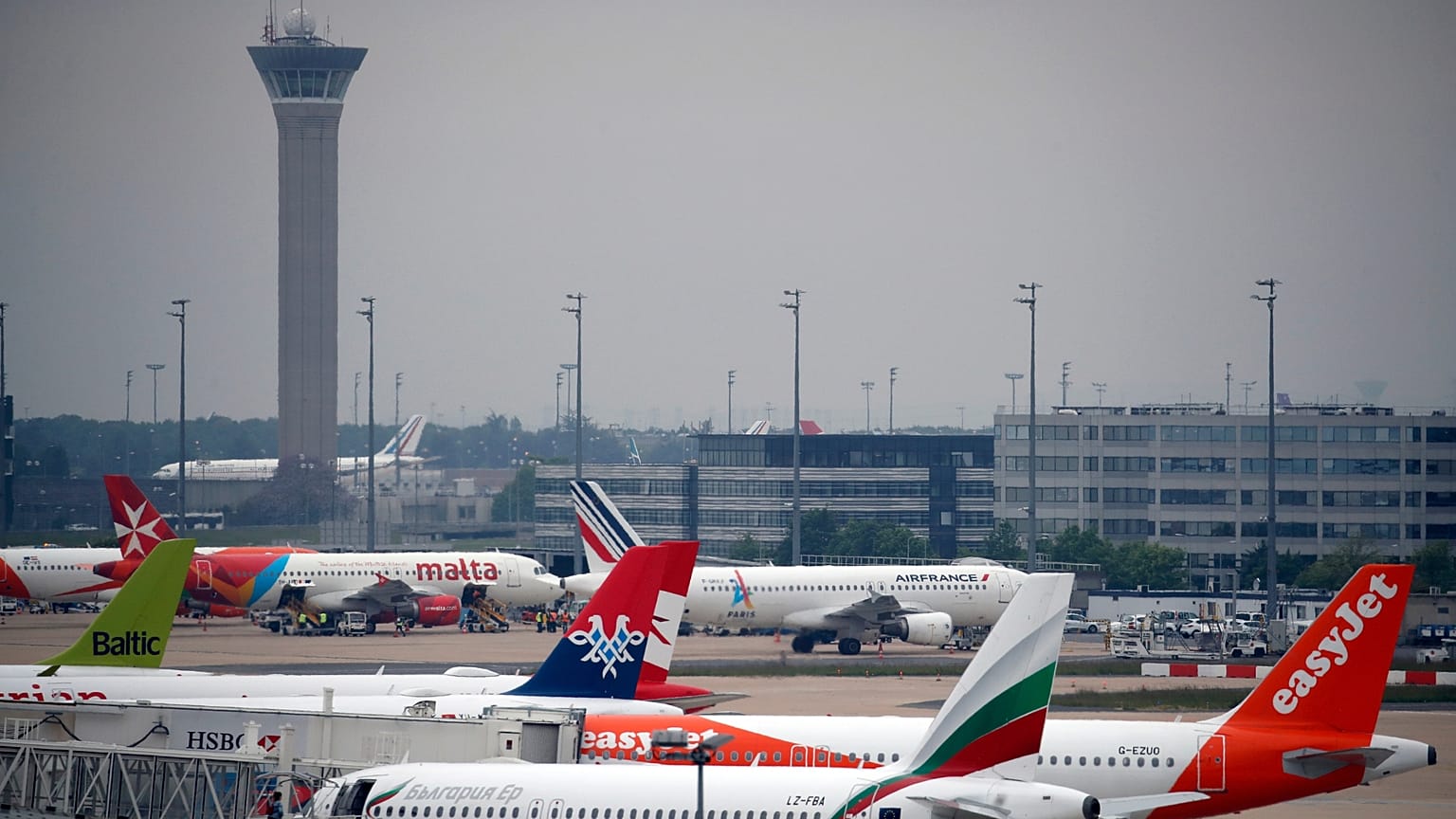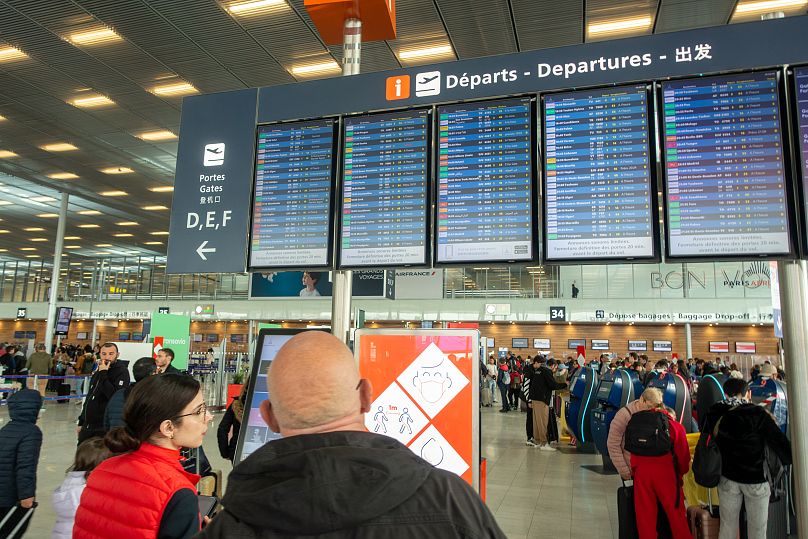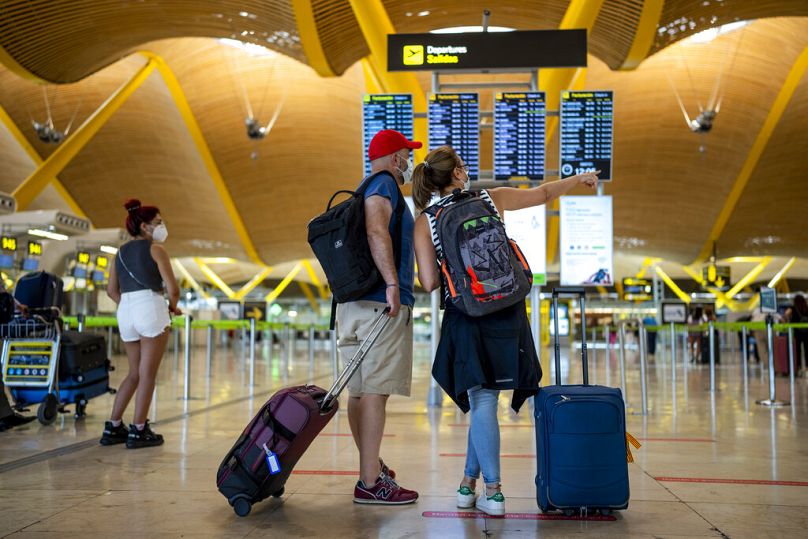The introduction of France’s short-haul flight ban has renewed calls for Europe to cut down on journeys that could be made by train.
Last week France officially introduced its ban on short-haul flights.
The final version of the law means that journeys which can be taken in under 2.5 hours by train can’t be taken by plane. There also needs to be enough trains throughout the day that travellers can spend at least eight hours at their destination.
Clement Beaune, the country’s Transport Minister, called the measures an “essential step and a strong symbol in the policy of reducing greenhouse gas emissions”.
So, as Europe looks to undergo a rail revolution by encouraging people to consider trains before planes, could the new law be the first of many?
Is the public behind a ban on short-haul flights?
A 2020 European Investment Bank survey already found widespread support from the public.
More than 60 per cent of people surveyed supported a ban on short-haul flights.
And Greenpeace demanded an EU-wide ban in 2021 for any flights where a rail journey would take under six hours.
Speaking to inews after the French ban was signed into law, Belgium’s Deputy Prime Minister and Minister of Mobility called for the EU to follow France’s example.
Georges Gilkinet told the British newspaper that a ban needed to be on a “European level” with support for night trains and the bloc’s rail network.
Watering down France’s short-haul flight ban
The short-haul flight legislation was first proposed in 2021 as part of France’s Climate Law and its official introduction has been hard-won with fierce opposition from the aviation industry.
The government secured Air France’s compliance with the ban by offering financial support during the COVID-19 pandemic. Competitors have been banned from filling the gap left by the country’s flag carrier.
It was initially proposed as a restriction on journeys that could be completed in under four hours by train, however objections from the aviation industry led to changes.
In reality, the final version of the law means that just three flight routes have been impacted - Paris-Orly to Bordeaux, Nantes and Lyon. These trips were already cut back in 2020 so essentially it just ensures they can’t be brought back.
The original plan would have seen the end of five more routes from Paris Charles de Gaulle to Bordeaux, Lyon, Nantes and Renne and Lyon to Marseilles. But these trips were saved as timetables didn’t allow travellers to arrive early enough or depart late enough and airports weren't close to train stations for the law to apply.
Critics have said it is merely “symbolic” in paying lip service to climate concerns without any significant reduction in carbon emissions. Transport & Environment estimates that it represents just 0.3 per cent of the emissions produced by flights taking off from mainland France.
Beaune hit back against claims of greenwashing on Twitter assuring more flights would be cut in the future when the ban is reviewed.
"The decree is valid for 3 years so we can be more ambitious as we go further, by increasing the time of travel from 2.5 hours to at least 3 hours in the future," he said.
Where else in Europe is considering a short-haul flight ban?
In 2021, Spain presented a plan to ban short-haul flights where journeys could be made by train in under 2.5 hours by 2050. It could mean no more flights from Madrid to anywhere on the mainland.
Government estimates said it could cut greenhouse gas emissions by up to two million tonnes. The plan also included a tax on frequent fliers and for trips based on the proximity of the final destination.
Much like the French short-haul flight ban, it attracted angry protests from airlines at the time. They claimed that the plan would have a ‘devastating’ effect on aviation, tourism and the country’s economy.
It’s not surprising that other countries are now sceptical about introducing similar measures. But the introduction of France’s new law could encourage more EU nations to consider measures like this.
Have other European countries tried to ban short-haul flights?
France isn’t the first European country to try and limit the number of short-haul flights made within its borders. In 2020, Austria set conditions on a COVID-19 rescue package for its flag carrier, Austria Airlines.
The government would bail the company out if it got rid of all flights where a rail journey would take less than three hours. It also introduced a tax of €30 on flights under 350km. Just one route was actually affected, from Vienna to Salzburg.
Germany has also had its sights set on disincentivising short-haul air travel in recent years. In 2020, it increased taxes on domestic and intra-European flights by 75 per cent. Belgium has also introduced a €10 tax on short-haul flights of less than 500km from Brussels Airport.




















